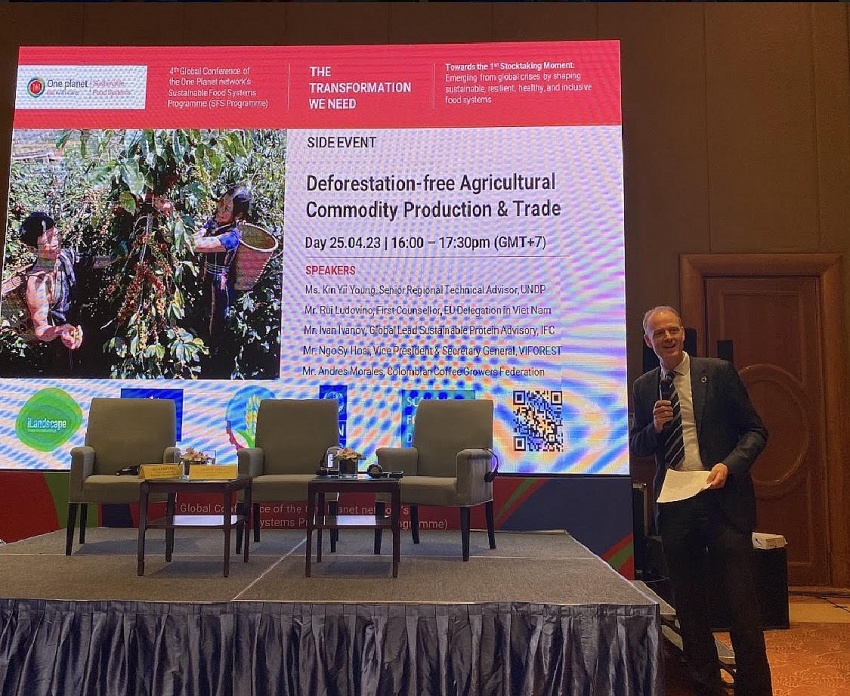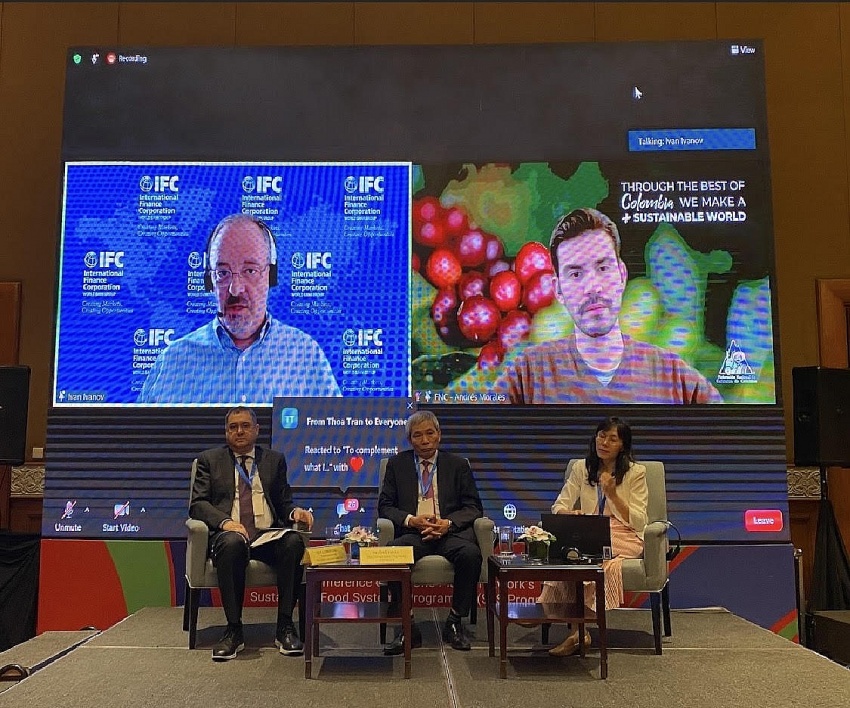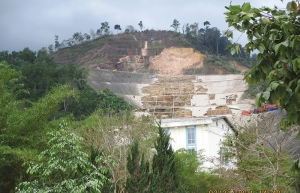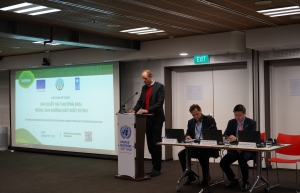Deforestation-free agricultural production and trade
 |
| Patrick Haverman, deputy resident representative of UNDP Vietnam |
The workshop was a part of the fourth Global Conference of the One Planet network's Sustainable Food Systems Programme. The side event brought together the experience and expertise of various institutions, as well as case studies of emerging good practice interventions to adapt to the requirements of deforestation-free commodity production and trade.
In a world in which agricultural expansion drives almost 90 per cent of global deforestation, deforestation-free regulations and commitments need to be well understood and translated into positive actions on the ground.
Patrick Haverman, deputy resident representative of UNDP Vietnam, pointed out some issues, "Firstly, instead of introducing completely new policies, laws, regulations, and programmes to meet the emerging international requirements, such as the EU deforestation-free regulation, the next step is to demonstrate how existing legislation could be connected to these regulations, and how to improve it to promote innovative transformation to tackle climate change and deforestation."
"Secondly, more than ever, stakeholders such as the users, buyers, and financial institutions have a more prominent role in shaping the market, and it is sustainable and responsible consumption that will drive sustainable production and supply chains," he said.
"Thirdly, smallholder farmers and producers will be the most affected if sustainable and deforestation-free regulations are applied due to the expensive and stringent due diligence process. Therefore, measures need to be incorporated to support and protect these vulnerable groups."
“With the recent global context and regulations on sustainable production, commercialisation, and deforestation-free supply chains, the UNDP is ready to work with government partners and the private sector to create an enabling environment that will support the deforestation-free production and commercialisation model for the benefits of the environment and people – particularly smallholders,” concluded Haverman.
 |
| Experts discussing deforestation-free agricultural production and trade |
Rui Ludovino, first counsellor for Climate Action, Environment, Employment, and Social Policies at the Delegation of the European Union to Vietnam, introduced the process of defining a roadmap towards sustainable, deforestation-free commodities imported to the EU, and the next steps required to prepare countries for the changes.
From the perspective of a financial institution, Ivan Ivanov, global lead for the Sustainable Protein Platform at the International Finance Corporation, shared his opinions and experience on investments in deforestation-free value chains, especially strategies for leveraging current interest from both the private and public sectors in sustainable, deforestation-free land use practices.
From an industry standpoint, Ngo Sy Hoai, vice president and secretary general of the Association of Vietnam Timber and Forest Products, discussed the extent to which Vietnam can further advance its efforts and contributions to international initiatives like REDD+, and national policies such as logging bans, payments for environmental services, and restoration programmes. He also shared his views on the capacity of Vietnam's businesses and smallholder producers of timber and non-timber forest products to keep up with the new deforestation-free regulations.
Additionally, the workshop featured the example of Colombia, where efforts have been made to reverse forest loss and degradation and promote deforestation-free production.
Andres Morales, sustainability and international cooperation coordinator at the Colombian Coffee Growers Federation, shared his insights on the impacts of international commitments and regulations on smallholder farmers. Specifically, he discussed how the Colombian coffee sector has responded to the challenges posed by deforestation and forest degradation, and how smallholder farmers have been able to benefit from the shift towards more sustainable production practices.
The side event was within the framework of the EU-funded integrated sustainable landscape management through deforestation-free jurisdiction in Lam Dong and Dak Nong project, which targets protecting 25,000 hectares of natural forest, reducing harmful CO2 emissions by 3 million tonnes, enabling 35 per cent of the project area’s marginalised populations in both provinces to benefit from improved livelihoods, especially women and ethnic minorities, and increasing the total value of commodities in the project area by 25 per cent.
 | Deforestation past continuing to haunt erosion-hit areas More work is required to deal with poor soil conditions and erosion in the central coastal province of Thua Thien-Hue after an environmental scientist made a fact-finding mission last month. |
 | Vietnam moving towards deforestation-free coffee production The United Nations Development Programme (UNDP), the European Union, and the Vietnam Administration of Forestry jointly held a technical workshop on deforestation-free coffee production and commercialisation this week in Hanoi. |
What the stars mean:
★ Poor ★ ★ Promising ★★★ Good ★★★★ Very good ★★★★★ Exceptional
 Tag:
Tag:
Related Contents
Latest News
More News
- Trung Nam-Sideros River consortium wins bid for LNG venture (January 30, 2026 | 11:16)
- Vietnam moves towards market-based fuel management with E10 rollout (January 30, 2026 | 11:10)
- Envision Energy, REE Group partner on 128MW wind projects (January 30, 2026 | 10:58)
- Vingroup consults on carbon credits for electric vehicle charging network (January 28, 2026 | 11:04)
- Bac Ai Pumped Storage Hydropower Plant to enter peak construction phase (January 27, 2026 | 08:00)
- ASEAN could scale up sustainable aviation fuel by 2050 (January 24, 2026 | 10:19)
- 64,000 hectares of sea allocated for offshore wind surveys (January 22, 2026 | 20:23)
- EVN secures financing for Quang Trach II LNG power plant (January 17, 2026 | 15:55)
- PC1 teams up with DENZAI on regional wind projects (January 16, 2026 | 21:18)
- Innovation and ESG practices drive green transition in the digital era (January 16, 2026 | 16:51)




























 Mobile Version
Mobile Version